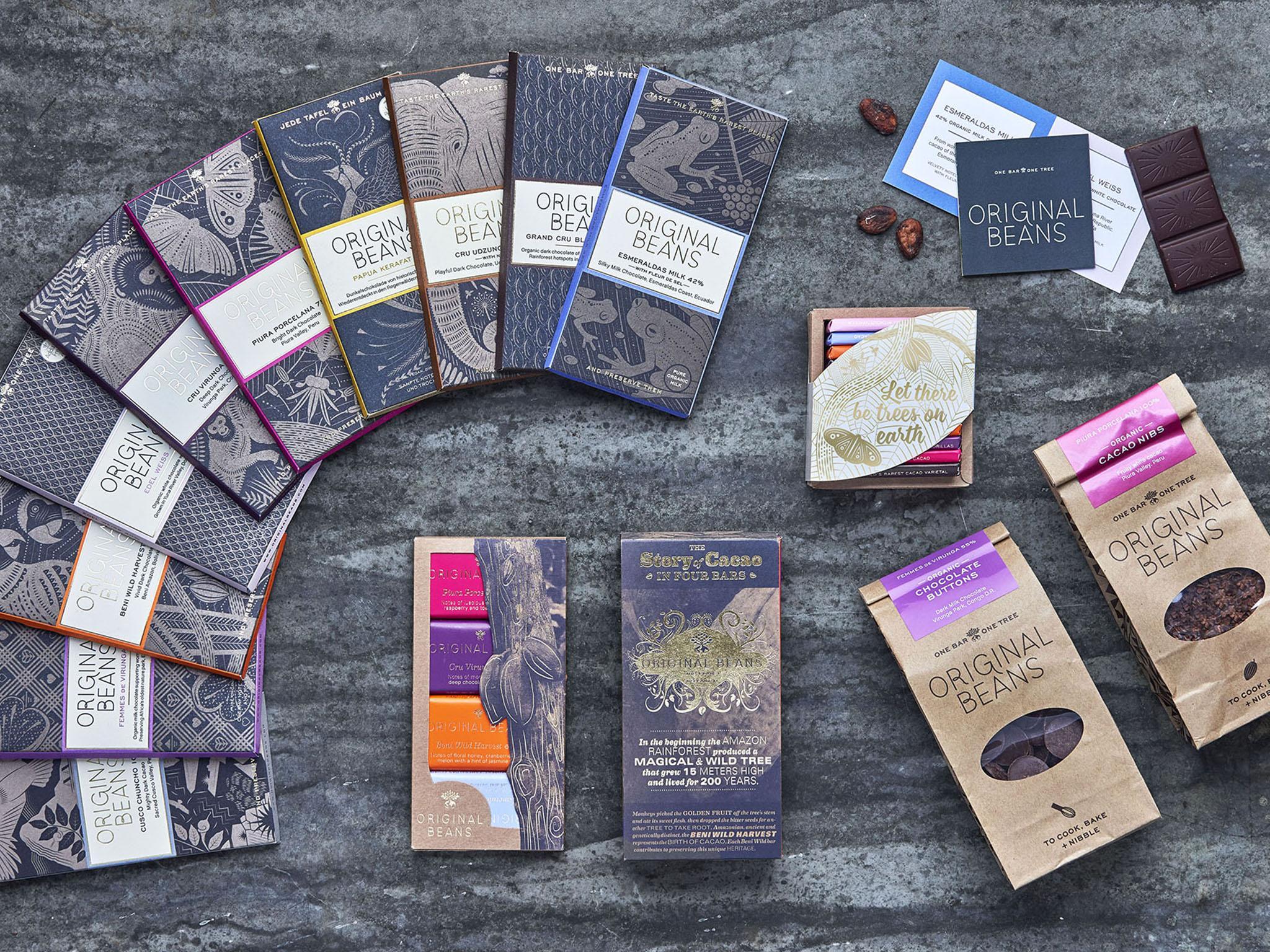How a new generation of chocolate producers are trying to clean-up its tarnished reputation
Chocolate as we know it has little to do with cacao and in the end the growers of cacao beans suffer at the hands of mass market chocolate producers. But ethically sourced chocolate is not impossible, says Julia Platt Leonard, who meets one producer dedicated to being transparent as possible

I’ve just polished off the last bite of a bar of Piura Porcellana 75 per cent and have the satisfied glow that comes from eating really great chocolate. I also feel rather smug because thanks to me, a tree has been planted. Original Beans – the maker of my bar – operates a one bar: one tree programme, planting a tree or cacao seedling for every chocolate bar sold. They’re also carbon negative since each tree they plant in a healthy cacao forest absorbs 274g more CO2 than emitted during the production of a bar. And there is zero waste as both box and foil are made from wood.
If you’re thinking this sounds like little more than a cynical and calculated marketing ploy then you’re not alone. I did too. The chocolate industry has a track record of exploiting cacao growers and the environment in equal measure. While a new generation is trying to clean-up chocolate’s tarnished reputation, all of the talk of ‘bean to bar’ can feel like empty words – how can we really know that our love of chocolate is helping, not harming?
Philipp Kauffmann, the ‘Chief Grower’ at Original Beans, readily acknowledges my quandary. “What we know as chocolate is actually candy. And that market is larger than the music or the book market but it is candy and has nothing to do with chocolate and very little to do with cacao,” he says. “It has a lot of severe consequences as a result of the way it’s structured for the health of us as consumers and the health of farmers and the health of nature as well.”
For Kauffmann, the opportunity – the challenge – is to change the way we think about, buy and consume chocolate. “It’s a really great industry to transform. But unfortunately it has a very vicious historic burden. It was set up the wrong way and to change that is hard but it has a very big virtuous opportunity and that’s what we’re working on.”
Other people could bandy about words like ‘transform’ and ‘virtuous’ and they might stretch credulity but when you listen to Kauffmann there is meaning behind them. He worked as an internet entrepreneur in the ‘90s but quit, deciding to dedicate himself to nature preservation, working for both the World Wildlife Fund and the UN. “At a certain point in my life I decided to step out of that and commit myself to what my ancestors have been doing for more than 200 years.”
Those ancestors include G.L. Hartig, an eminent forestry scientist who advocated in the late 1700s for a then radical system of forestry management so, “…that generations thereafter can draw at least as much advantage from it as the presently living does.” In creating Original Beans, Kauffmann was drawn as much, if not more, to the idea of helping the environment as he was to creating a fine chocolate.
Mass market chocolate producers decide on the products, he says, set the prices and the growers suffer. He’s trying to redress that by working with growers directly, paying them more, and supporting initiatives within their communities, like the tree planting scheme.
While chocolate labels can be baffling, he says there are a number of things consumers can do to buy ethically sourced and produced products. He says the first step is to look at the ingredient label and see if it’s made of cacao mass or cacao powder. “If it’s powder there’s already a note of caution because a) powder usually is used in highly processed chocolate products.” The other problem is that powder is produced in bulk so there’s no traceability. “There’s no origin to it and therefore also no responsibility.”
The second key is to see if the origin of the cacao is indicated. So, for example, that Piura Porcellana that I enjoyed, comes from the Piura Valley in the Peruvian Andes. If I’m doubtful (which of course I am), there’s a bar tracking number which I can input on the website. When I do, I get a map that shows me exactly where the cacao for these bars are grown. I also find out that thanks to fellow chocolate lovers we’ve planted over 40,000 cacao seedlings and 10,000 other trees.
“The better you know where the chocolate comes from, down to the specifics of a community, a village, the more responsible it will be because there is transparency built in and you can check that. It’s the door the producer is opening and that’s really important.”
The third things to look for, Kauffmann says is organic. Aside from the environmental benefits, it also means that he can trace his chocolate from the cacao farm all the way through the food chain. He likens Original Beans’ approach to the farmers market model, “…where you get a sense of actually buying from the actual grower.”
Next Kauffman will be working with a tribe to grow cacao on their ancestral lands in Northern Columbia. He’s clearly eager for the new challenge. “They have a huge amount to teach us, how to balance our way of living with nature and that’s very exciting. And great, great chocolate,” he adds. As the last notes of lime and raspberry and pecan fade from my mouth, I couldn’t agree more.
Subscribe to Independent Premium to bookmark this article
Want to bookmark your favourite articles and stories to read or reference later? Start your Independent Premium subscription today.

Join our commenting forum
Join thought-provoking conversations, follow other Independent readers and see their replies